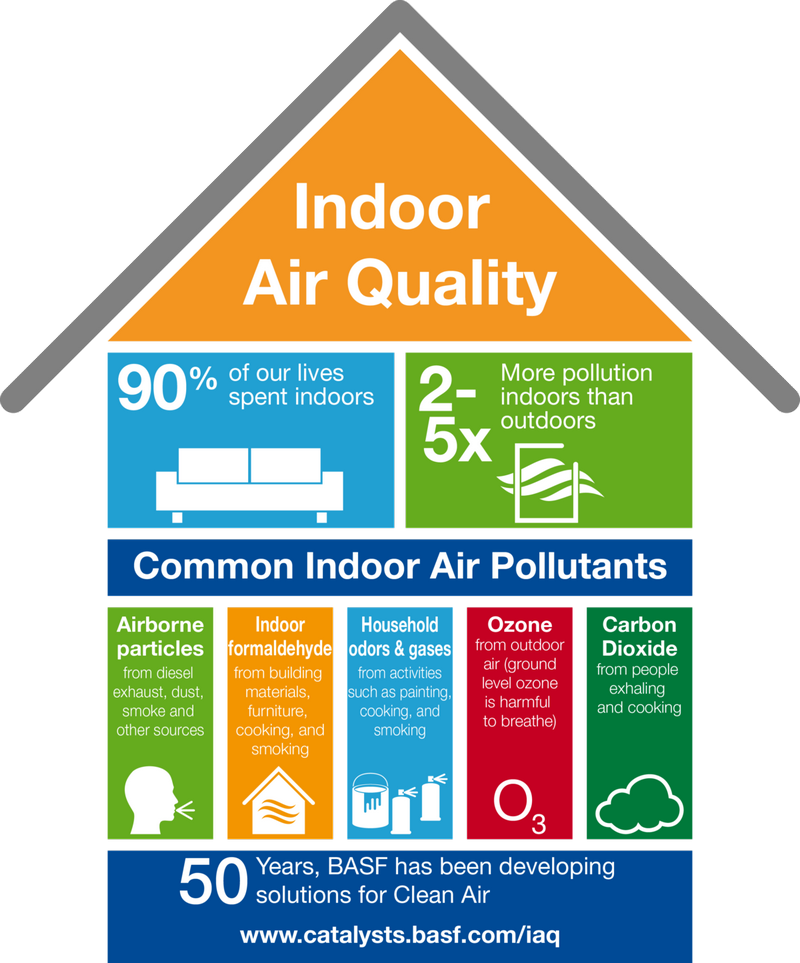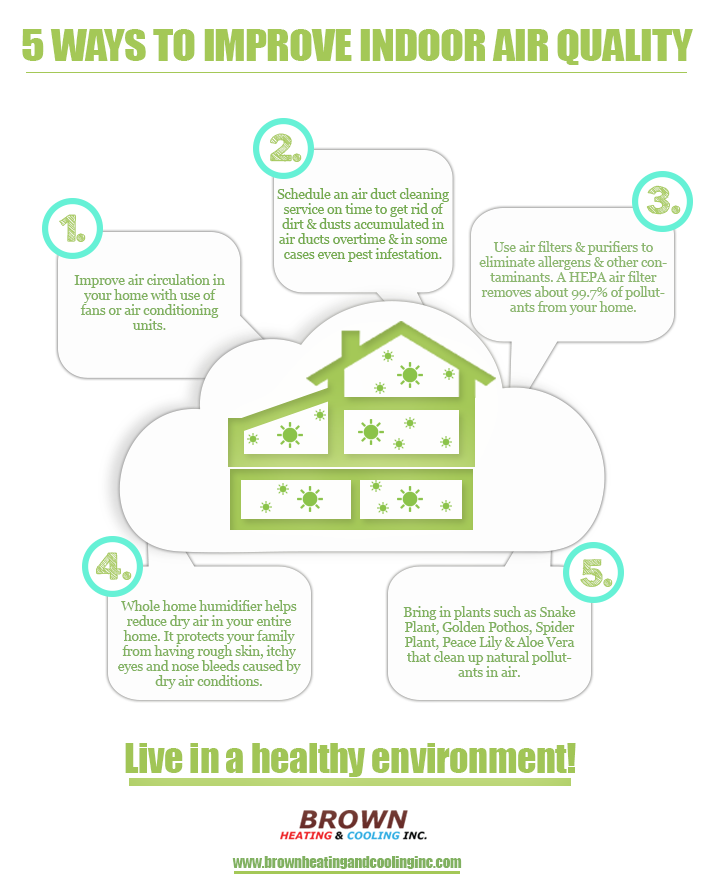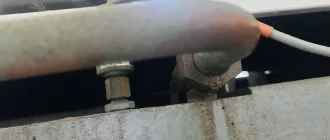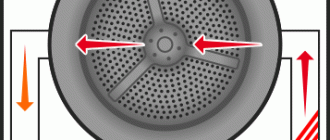
Natural Ways to Improve Indoor Air Quality
Indoor air quality is an important aspect of our overall well-being, and yet it is often overlooked. Poor air quality can have detrimental effects on our health, causing allergies, respiratory problems, and even more serious conditions. Fortunately, there are simple and natural ways to improve the air quality in our homes, creating a healthier environment for ourselves and our loved ones.
One of the best ways to improve indoor air quality is to incorporate natural elements into our living spaces. Plants are not only aesthetically pleasing, but they also act as natural air purifiers, absorbing toxins and emitting fresh oxygen. Some plants, such as aloe vera and spider plants, are particularly effective at removing harmful substances from the air. Additionally, opening windows and allowing fresh air to circulate can greatly improve the quality of indoor air.
Another natural way to improve indoor air quality is to reduce the use of synthetic products and chemicals in our homes. Many cleaning products, air fresheners, and even furniture emit harmful volatile organic compounds (VOCs) into the air. By opting for natural alternatives, such as vinegar and baking soda for cleaning, and choosing furniture made from natural materials, we can minimize our exposure to these toxins and create a healthier living environment.
In conclusion, improving indoor air quality is essential for our overall health and well-being. By incorporating natural elements, such as plants, into our homes and reducing the use of synthetic products and chemicals, we can significantly improve the quality of the air we breathe. These simple tips and tricks are not only effective but also easy to implement, allowing us to create a naturally fresh and healthy living environment for ourselves and our families.
Use Natural Air Purifiers
Natural air purifiers are an excellent way to improve indoor air quality. They are free of chemicals and provide a cost-effective solution for cleaning the air in your home.
One way to use natural air purifiers is by incorporating indoor plants into your living space. Plants not only add beauty to any room but also help filter out toxins from the air. Some plants, such as the snake plant and the peace lily, are particularly effective at removing harmful pollutants like formaldehyde, benzene, and ammonia.
Another natural air purifier is activated charcoal. This highly porous substance absorbs odors and toxins from the air, leaving it cleaner and fresher. You can place small bowls filled with activated charcoal around your home or use charcoal filters in your air vents to improve indoor air quality.
Using natural air purifiers is not only beneficial for your health but also for the environment. By choosing natural alternatives over traditional air purifiers, you reduce your carbon footprint and decrease the amount of waste sent to landfills.
So, if you’re looking for ways to improve indoor air quality, consider using natural air purifiers. Plants and activated charcoal are just a few options that provide a sustainable and effective solution for breathing cleaner air in your home.
Keep Your Home Clean
Keeping your home clean is one of the most natural ways to improve indoor air quality. Regular cleaning helps to remove dust, allergens, and other pollutants from your home, ensuring that the air you breathe is of the highest quality.
Here are some tips to help you keep your home clean:
- Vacuum your carpets and rugs regularly to remove dirt and dust. Use a vacuum cleaner with a HEPA filter to trap even the smallest particles.
- Dust surfaces using a microfiber cloth or a damp cloth to prevent dust from becoming airborne.
- Mop hard floors with a natural cleaning solution. Avoid using harsh chemicals as they can release harmful fumes into the air.
- Wash bedding, curtains, and other fabrics regularly to remove dust mites and allergens.
- Keep your pets clean by regularly bathing them and brushing their fur to reduce pet dander in the air.
- Minimize clutter in your home as it can trap dust and make cleaning more difficult.
- Open windows and doors regularly to let fresh air in and improve ventilation.
- Use natural air fresheners like essential oils or baking soda to remove odors without introducing chemicals into the air.
By following these simple cleaning tips, you can create a cleaner and healthier indoor environment for you and your family.
Increase Ventilation
One natural way to improve indoor air quality is to increase ventilation in your home. Proper ventilation helps to remove stale air and bring in fresh outdoor air, which can help to improve the overall air quality indoors.
Here are a few ways to increase ventilation:
- Open windows and doors: One simple way to increase ventilation is to open windows and doors regularly, especially during times when the outdoor air quality is good.
- Use exhaust fans: Install exhaust fans in bathrooms and kitchens to help remove moisture and odors from these areas.
- Invest in a whole-house ventilation system: If you want to ensure constant fresh air circulation throughout your home, consider investing in a whole-house ventilation system. These systems are designed to remove stale air and bring in fresh air from the outdoors.
- Keep air vents clear: Make sure that air vents in your home are not blocked by furniture or other objects. Blocked vents restrict airflow and can reduce the effectiveness of your ventilation system.
By increasing ventilation in your home, you can help to improve the air quality naturally, creating a healthier indoor environment for you and your family.
Use Houseplants
Indoor air quality can often be improved by incorporating natural elements into your living space. One effective and aesthetically pleasing way to do this is by using houseplants.
Plants have the ability to naturally filter the air, removing pollutants and releasing oxygen. They can also help to add moisture to the air, which can be beneficial for those who suffer from dry air-related issues such as cracked skin or respiratory problems.
Some specific plants that are known for their air-purifying abilities include the Boston fern, spider plant, peace lily, and snake plant. These plants are relatively low-maintenance and can thrive in indoor environments with minimal sunlight.
In addition to their air-cleaning properties, houseplants can also enhance the overall aesthetic of a room, adding a touch of nature and greenery. They can be placed in various areas of your home, such as the living room, bedroom, or even the kitchen.
When selecting houseplants, it’s important to consider the specific needs of each plant and to ensure they are compatible with your indoor environment. This includes factors such as light levels, humidity, and temperature.
Incorporating houseplants into your indoor space is a simple and natural way to improve indoor air quality and create a more pleasant and inviting environment.
Avoid Harsh Chemicals
To improve indoor air quality naturally, it is important to avoid using harsh chemicals in your home. Many cleaning products and air fresheners contain chemicals that can release harmful pollutants into the air and negatively impact your health. Instead, opt for natural alternatives that are gentle on both you and the environment.
One way to avoid harsh chemicals is to make your own cleaning products using simple ingredients like vinegar, baking soda, and lemon juice. These natural cleaners are just as effective at removing dirt and grime, but without the harmful side effects. You can use vinegar and water as a general all-purpose cleaner, and baking soda as a natural abrasive for scrubbing surfaces. Lemon juice also works as a natural disinfectant and leaves a fresh scent behind.
When it comes to air fresheners, it’s best to avoid commercial aerosol sprays and plug-in air fresheners. These products often contain synthetic fragrances that can trigger allergies and worsen respiratory conditions. Instead, opt for natural alternatives like essential oils or homemade potpourri. You can use a few drops of essential oil in a diffuser to freshen the air, or make your own potpourri by combining dried flowers, herbs, and spices in a decorative bowl.
By avoiding harsh chemicals and opting for natural alternatives, you can significantly improve the indoor air quality in your home. Not only will you be creating a healthier environment for yourself and your family, but you will also be reducing your impact on the environment. Remember, small changes can make a big difference.
Control Humidity Levels
One important aspect of improving indoor air quality is controlling the humidity levels in your home. High humidity can lead to the growth of mold and mildew, which can have a negative impact on your health.
To naturally control humidity levels, consider the following tips:
| Use Dehumidifiers | Dehumidifiers are effective in removing excess moisture from the air. Place them in areas of your home that tend to be more humid, such as basements or bathrooms. |
| Proper Ventilation | Ensure that your home is properly ventilated to allow for the circulation of fresh air. Open windows and doors when weather permits, and use exhaust fans in areas prone to humidity, like the kitchen or bathroom. |
| Fix Water Leaks | Water leaks can contribute to high humidity levels in your home. Inspect and repair any leaks in pipes, faucets, or roofs to prevent excess moisture from accumulating. |
| Avoid Drying Clothes Indoors | Hanging wet laundry indoors can increase the humidity levels in your home. Whenever possible, dry clothes outside or in a well-ventilated area. |
| Use Houseplants | Some houseplants, like Boston ferns and spider plants, can help to naturally regulate humidity levels. They absorb excess moisture from the air through their leaves. |
By controlling humidity levels in your home, you can improve the overall quality of indoor air and create a healthier environment for yourself and your family.
Keep Pets Clean
Our furry friends can bring so much joy to our lives, but they can also contribute to indoor air pollution. Pets, especially those with fur or feathers, can shed dander and hair, which can worsen the air quality in your home. However, there are several ways you can improve indoor air quality when it comes to your pets.
Regular grooming: Regular grooming helps to reduce the amount of dander and hair that your pets shed. Brushing your pets regularly can help to remove loose hair and dander before it has a chance to be released into the air. Consider using a groomer or investing in a high-quality pet brush.
Washing bedding: Washing your pets’ bedding regularly can help to remove built-up dirt, pet dander, and fur. Use a hypoallergenic detergent and hot water to ensure a thorough clean.
Vacuuming: Vacuuming your home regularly, especially areas where your pets spend a lot of time, can help to remove pet hair and dander from your carpets, rugs, and furniture. Consider using a vacuum cleaner with a HEPA filter to ensure that pet allergens are effectively captured.
Keeping pets off furniture: If possible, try to keep your pets off furniture, as pet hair and dander can easily accumulate on upholstery. Use covers or blankets to protect your furniture from pet hair, and wash them regularly.

Avoid smoking indoors: Smoking indoors not only affects your health but also contributes to poor indoor air quality. Secondhand smoke can be harmful to pets as well. If you’re a smoker, try to smoke outside and away from your pets.
By following these simple tips, you can help to improve the air quality in your home while still enjoying the company of your furry friends.
Limit Smoking Indoors
One of the most effective ways to improve indoor air quality is to limit or eliminate smoking indoors. Tobacco smoke contains hundreds of harmful chemicals and can have a significant impact on the air you breathe.
When someone smokes indoors, the smoke particles can linger in the air for hours or even days. This can lead to a buildup of harmful chemicals, such as carbon monoxide, formaldehyde, and benzene. These substances can not only cause respiratory irritation, but also increase the risk of developing serious health conditions, including lung cancer and heart disease.
To ensure a healthier indoor environment, it is important to establish a no-smoking policy inside your home or building. Encourage smokers to smoke outside, away from windows and doors, to prevent the smoke from entering the indoor space.
If there are individuals who still smoke indoors, consider creating designated smoking areas that are separate from the main living or working spaces. These areas should have proper ventilation and contain air purifiers or filters to help reduce the amount of smoke and airborne pollutants.
Additionally, it is essential to regularly clean and vacuum your indoor space to remove any residual smoke particles and odor. Use natural cleaning products to avoid introducing more chemicals into the air.
| 1. Establish a no-smoking policy inside your home or building. |
| 2. Encourage smokers to smoke outside, away from windows and doors. |
| 3. Create designated smoking areas with proper ventilation and air purifiers. |
| 4. Regularly clean and vacuum your indoor space to remove smoke particles and odor. |
Choose Natural Cleaning Products
Indoor air quality can be greatly improved by choosing natural cleaning products. Many conventional cleaning products contain harsh chemicals that can release volatile organic compounds (VOCs) into the air, leading to poor indoor air quality and potential health issues.
By opting for natural cleaning products, you can reduce the exposure to these harmful chemicals and create a healthier living environment. Look for products that are labeled as “natural,” “non-toxic,” or “eco-friendly.” These products are typically made from plant-based ingredients and do not contain artificial fragrances or dyes.
Not only are natural cleaning products better for the air, but they are also safer for you and your family. Harsh chemicals found in conventional cleaning products can irritate the respiratory system, trigger allergies, and even cause skin irritations. By choosing natural alternatives, you can avoid these potential health risks.
To ensure that you are truly using natural cleaning products, you can also make your own cleaning solutions using common household ingredients such as vinegar, baking soda, and lemon juice. These ingredients are effective at cleaning and disinfecting without the need for harsh chemicals.
In conclusion, choosing natural cleaning products is a simple and effective way to improve indoor air quality. By reducing the use of harsh chemicals and opting for natural alternatives, you can create a healthier and safer home environment for you and your family.
Avoid Synthetic Fragrances
One of the natural ways to improve indoor air quality is to avoid synthetic fragrances. Synthetic fragrances can be found in many common household products, such as air fresheners, scented candles, cleaning products, and personal care items. While these products may make your home smell pleasant, they often release harmful chemicals into the air.
These chemicals can irritate the respiratory system, trigger allergies, and worsen asthma symptoms. They can also contribute to indoor air pollution and affect the overall air quality in your home.
Instead of using products with synthetic fragrances, opt for natural alternatives. Look for fragrance-free or unscented products. You can also use essential oils to naturally add a pleasant scent to your home. Simply add a few drops of essential oil to a diffuser or mix it with water in a spray bottle to create a natural air freshener.
In addition to avoiding synthetic fragrances, it’s also important to properly ventilate your home. Open windows and use fans to circulate fresh air. This can help remove indoor air pollutants and improve the overall air quality.
By avoiding synthetic fragrances and opting for natural alternatives, you can improve the indoor air quality in your home and create a healthier living environment for you and your family.
Regularly Change Air Filters
One of the easiest and most effective ways to improve indoor air quality naturally is to regularly change air filters in your home. Air filters are responsible for removing dust, pollen, pet dander, and other particles from the air, preventing them from circulating and reducing air quality.
Over time, air filters can become clogged with these particles, making them less effective. By changing your air filters regularly, typically every 1-3 months depending on the type, you ensure that they are functioning optimally and capturing as many pollutants as possible.
When choosing air filters, look for options that are labeled as high-efficiency particulate air (HEPA) filters. These filters are designed to remove up to 99.97% of airborne particles, improving the air quality in your home. Additionally, consider using filters with activated carbon, which can help to absorb odors and volatile organic compounds (VOCs).
Regularly changing your air filters is a simple but important step in maintaining good indoor air quality. By doing so, you can reduce the concentration of pollutants in your home and create a healthier living environment for you and your family.
Keep Windows Open
One of the simplest and most natural ways to improve indoor air quality is to keep your windows open. Opening windows allows for better airflow and ventilation, helping to circulate fresh outdoor air into your home and eliminate pollutants and allergens that can build up indoors.
Indoor air can often become stagnant and filled with pollutants from everyday activities such as cooking, cleaning, and using household products. By opening your windows regularly, you can reduce the concentration of these pollutants and improve the overall air quality in your home.
In addition to improving air quality, keeping windows open can also help regulate temperature and humidity levels inside your home. This can be particularly beneficial during the warmer months, as it allows cool, fresh air to enter and prevents your home from becoming stuffy and uncomfortable.
However, it’s important to consider the outdoor air quality before opening your windows. If you live in an area with high levels of pollution or allergens, it may be best to keep your windows closed or use air purifiers to filter the incoming air. Additionally, be mindful of security and safety risks when leaving windows open, especially on lower floors or at night.
Overall, keeping windows open is a simple and effective way to naturally improve indoor air quality. It allows for better airflow, eliminates pollutants, and helps create a fresh and comfortable living environment. So, make it a habit to open your windows regularly and enjoy the benefits of cleaner air in your home.
Test for Radon
Radon is a natural radioactive gas that can be found in indoor air. It is odorless and invisible, making it difficult to detect without proper testing. However, it is important to know if your indoor air contains high levels of radon, as long-term exposure can increase your risk of developing lung cancer. Here are a few ways to test for radon:
- Purchase a DIY radon test kit from a local supplier or online. These kits typically include a radon testing device and instructions on how to use it. Follow the instructions carefully and send the device to a lab for analysis.
- Hire a professional radon tester. They will have specialized equipment and knowledge to accurately measure the radon levels in your home. Make sure to choose a certified professional for reliable results.
- Consider installing a continuous radon monitor. These devices can provide real-time radon level readings and can give you a better understanding of the radon levels in your home over time.
If you find that your indoor air has high levels of radon, there are steps you can take to mitigate the issue. Contact a radon mitigation specialist to discuss potential solutions, such as sealing cracks in your foundation, improving ventilation, or installing a radon mitigation system.
Regularly testing for radon is an important step in ensuring the quality of your indoor air. By taking proactive measures, you can improve the air quality in your home and safeguard the health of you and your family.
Q&A:
How can I improve the indoor air quality in my home?
There are several natural ways to improve the indoor air quality in your home. You can start by opening windows and doors to let fresh air in, using houseplants to filter the air, and keeping your home clean and free of dust and mold. Additionally, you can use natural cleaning products and avoid smoking or using candles or air fresheners.
Are there any specific houseplants that are good for improving indoor air quality?
Yes, there are several houseplants that are known for their air-purifying qualities. Some examples include spider plants, pothos, peace lilies, and snake plants. These plants are effective at removing toxins such as formaldehyde, benzene, and xylene from the air.
What are some natural cleaning products that can help improve indoor air quality?
There are several natural cleaning products that can help improve indoor air quality. You can use vinegar and water to clean surfaces, baking soda to scrub sinks and toilets, and lemon juice to remove stains. Additionally, you can make your own air freshener by combining water, essential oils, and a natural preservative.
Is it true that keeping indoor humidity levels low can help improve air quality?
Yes, keeping indoor humidity levels low can help improve air quality. High humidity can promote the growth of mold and mildew, which can negatively impact indoor air quality. You can use a dehumidifier to control humidity levels and prevent these issues.
Can opening windows really improve indoor air quality?
Yes, opening windows can improve indoor air quality by letting fresh air in and allowing stagnant indoor air to escape. This can help remove pollutants and odors from your home. However, it’s important to consider outdoor air quality and pollution levels before opening windows.
How can I improve the air quality in my home naturally?
There are several natural ways to improve indoor air quality in your home. One of the simplest ways is to open your windows regularly to let in fresh air. You can also use natural air purifiers, such as houseplants, activated charcoal, or beeswax candles. Additionally, keeping your home clean, reducing clutter, and avoiding the use of harsh chemical cleaning products can help improve air quality.
Which houseplants are best for improving indoor air quality?
There are several houseplants known for their air-purifying properties. Some of the best houseplants for improving indoor air quality include the snake plant, English ivy, peace lily, spider plant, and pothos. These plants are known to filter out common indoor air pollutants and can help improve the overall air quality in your home.






